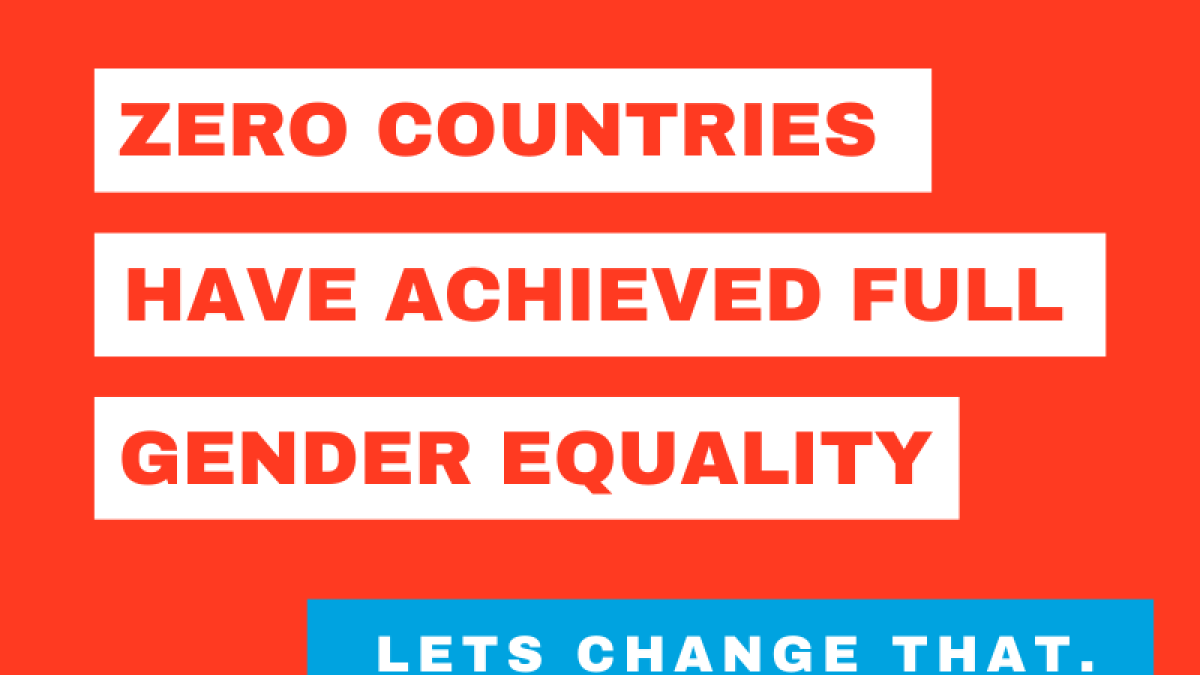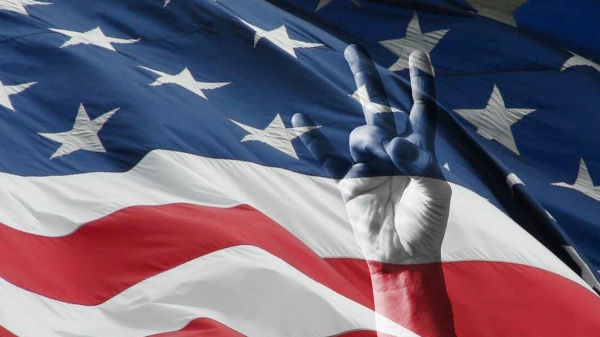ASU partners with UN, World Bank on gender equality training for world leaders

Only eight countries have legislated full gender equality, according to the World Bank’s Women, Business and the Law database. (No, the United States isn’t one of them.) And an estimated one in three women worldwide experience physical violence.
To accelerate the adoption of policies that empower women and ensure equal rights, Arizona State University’s Julie Ann Wrigley Global Futures Laboratory and EdPlus partnered with global organizations — including the Inter-Parliamentary Union, the United Nations and the World Bank — on a unique video training series: SDG 5 Training for Parliamentarians and Global Changemakers.
This series will inform members of parliaments and other leaders on gender issues and trends, providing actionable steps they can take to advance gender equality and the empowerment of women and girls (UN Sustainable Development Goal 5) in their countries.
In 2015, 17 Sustainable Development Goals (SDGs) were adopted by all 193 United Nations member states. SDG 5 is an especially important goal because “gender equality is intrinsically linked to all our development challenges,” according to Sanda Ojiambo, executive director of the United Nations Global Compact.
Head of EdPlus Social Impact, Erin Carr-Jordan, worked with ASU students at Luminosity Lab to build an interactive prototype tool that allows users the ability to compare country-level data and utilize a notification system that aligns with the UN’s Universal Periodic Review. This tool will “amplify impact and proactively encourage our partners all over the world to make positive change to discriminatory laws in advance of their public review at the UN Human Rights Council," Carr-Jordan says.
The SDG 5 training was developed during the beginning of the United Nations Decade of Action. 2020 is a landmark year to commemorate commitments to gender equality and the empowerment of women and girls. To take stock, it has been:
- 25 years since the Beijing Platform for Action and the Millennium Declaration.
- 20 years since the UN Security Council Resolution 1325 on Women, Peace and Security.
- 10 years since the creation of UN Women and the launch of the Women’s Empowerment Principles.
"The Global Futures Laboratory is thrilled to partner with so many wonderful organizations in a collaborative SDG 17 multi-stakeholder initiative to promote SDG 5,” said Amanda Ellis, director of global partnerships for the Global Futures Laboratory and co-chair (with Thunderbird Dean Sanjeev Khagram) of the universitywide UN SDG and Beyond Task Force.
Ellis was previously New Zealand’s ambassador to the UN and lead gender specialist for the World Bank. Other partners on this training series include the Council of Women World Leaders, Women Political Leaders and the Commonwealth Women Parliamentarians.
This SDG training for world leaders won’t be ASU’s last.
“Based on the quality of ASU’s work with the SDG 5 training, the Inter-Parliamentary Union has asked us to create a new training series for SDG 13: climate action, which will be key in the run up to COP 26,” Ellis said. “It’s wonderful to be able to align key global partnerships with the brilliant work going on at ASU.”
View the training videos below and learn how to take action on the SDG 5 Training for Parliamentarians and Global Changemakers site.
Laws
Only eight countries have legislated full gender equality. Time for change to benefit not only women and girls, but also everyone, everywhere.
Leadership
Did you know that companies with more gender representation perform better? Yet there is still a gender gap in leadership positions in corporations. Similarly, gender representation in the government correlates with stronger governance, but the majority of the global population is still uncomfortable with a female head of state.
Violence against women and girls
One in three women are expected to experience some form of sexual harassment or assault in their lifetime, according to the World Health Organization. Additionally, violence against women and girls costs approximately $1.5 trillion every year. Learn how to be an effective advocate against violence against women and girls.
Women, peace and security
Women are overly impacted by conflict, yet they’re often left out of peacekeeping processes. Agreements are more likely to succeed when women are involved. Learn how your country can develop a comprehensive "Women, Peace and Security" plan.
More Law, journalism and politics

ASU experts share insights on gender equality across the globe
International Women’s Day has its roots in the American labor movement. In 1908, 15,000 women in New York City marched to protest…

ASU Law to offer its JD part time and online, addressing critical legal shortages and public service
The Sandra Day O’Connor College of Law at Arizona State University, ranked 15th among the nation’s top public law schools,…

ASU launches nonpartisan Institute of Politics to inspire future public service leaders
Former Republican presidential nominee and Arizona native Barry Goldwater once wrote, "We have forgotten that a society…

